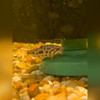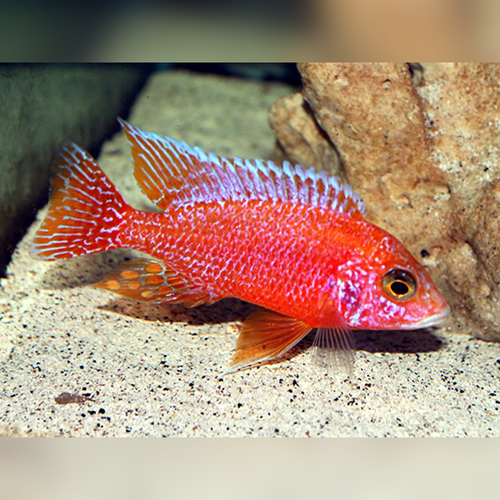Our Guide To Keeping Strawberry Leporinus Fish
-
About Fish Species:
- Scientific name: Leporinus sp. “strawberry”
- Common name: Strawberry Leporinus
- Family: Anostomidae
- Origin: South America (Amazon River basin)
- Adult length: Varies depending on species, generally ranges from 10 to 30 cm
- Lifespan: Approximately 5 to 8 years
-
Tank Setup:
- Strawberry Leporinus require a tank with plenty of swimming space. A minimum tank size of 75 gallons is recommended for a small group of these fish.
- Provide hiding places using rocks, driftwood, or artificial caves. They also appreciate dense vegetation and open areas for swimming.
-
Water Parameters:
- Strawberry Leporinus prefer slightly acidic to neutral water conditions with a pH range of 6.0 to 7.5.
- Maintain the water temperature between 24 to 28°C (75 to 82°F).
-
Filtration and Water Flow:
- A powerful filtration system is essential to maintain water quality due to their messy eating habits and high activity levels.
- Provide moderate to strong water flow to mimic their natural habitat.
-
Diet:
- Strawberry Leporinus are omnivores and will accept a variety of foods. Offer them a balanced diet consisting of high-quality pellets, flakes, and occasional live or frozen foods.
- Supplement their diet with vegetables like zucchini, spinach, and blanched peas, along with protein-rich foods like bloodworms and brine shrimp.
-
Tank mates:
- Strawberry Leporinus are generally peaceful but can be territorial, especially during breeding periods. They are best kept with similarly sized, robust fish that can hold their own.
- Compatible tank mates include medium to large-sized peaceful community fish such as larger tetras, barbs, cichlids, and catfish species.
-
Behavior and Compatibility:
- Strawberry Leporinus are active swimmers and may jump, so a tightly fitting lid is necessary.
- They may exhibit some aggression towards conspecifics or similar-looking fish, especially if kept in insufficiently large groups or in cramped quarters.







